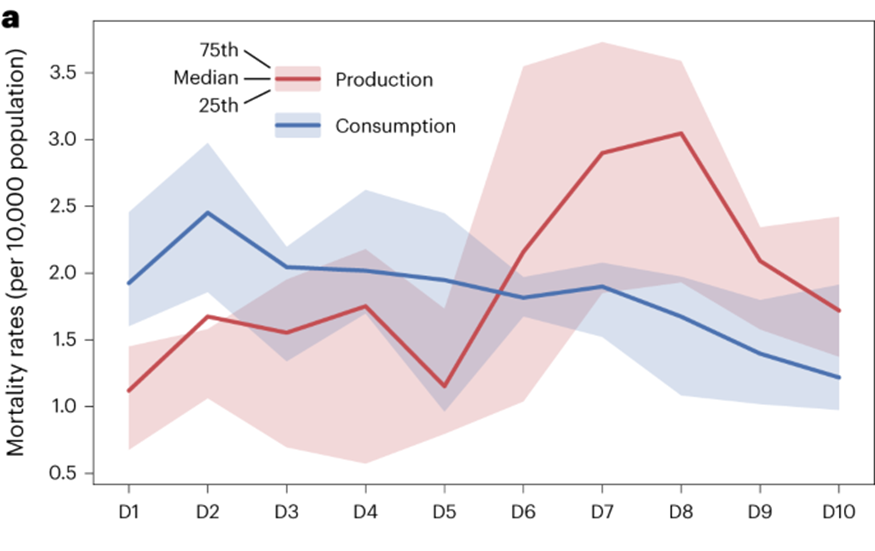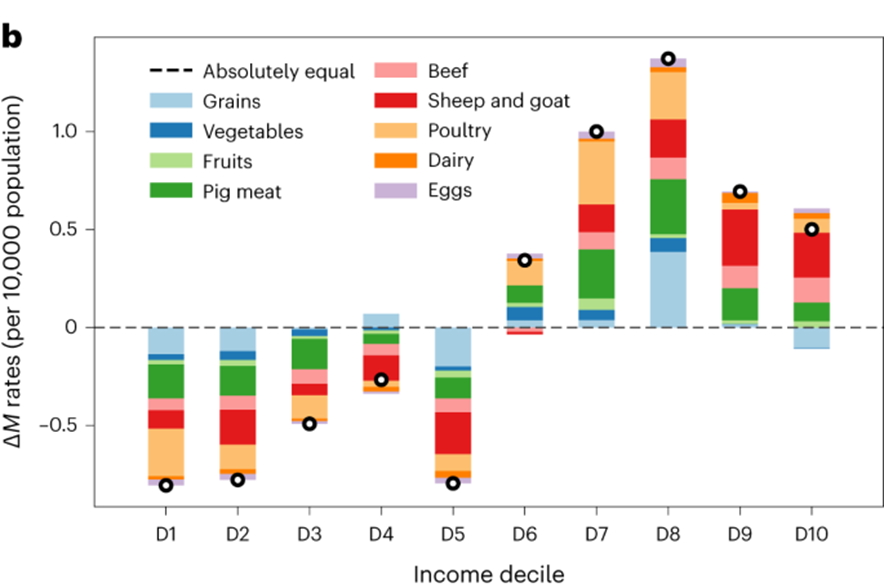(Photo: Xinhua News)
Peking University, May 17, 2024: Across regions where food is produced, emissions from agriculture pose as health risks to local populations. Amongst them, low-income groups are hit the hardest, a study by researchers at Peking University (PKU) and collaborators finds.
Why it matters: The study underscores significant health risks and inequalities within global food systems, revealing that low-income populations are disproportionately affected. These findings are critical for addressing disparities targeted by the United Nations Sustainable Development Goals (SDGs).
Fig. a: Relationship between income and premature mortality rate
Fig. b: Difference in mortality rate attributable to food production versus consumption, across income groups
Key findings:
• China’s food system resulted in approximately 260,000 premature deaths in 2017.
• 74% of premature deaths attributed to food production were linked to ammonia (NH3) emissions from grain cultivation and livestock rearing. The remaining deaths were due to emissions from food processing, packaging, transportation, and retailing.
• Low-income groups bear 70% greater health burden from food production as compared to consumption, while higher-income groups experience a 29% lower risk.
• Intervention strategies targeting both food production and consumption can effectively reduce health damage and mitigate inequalities, while singular-end interventions exhibit limited efficacy.
Methodology: The study utilized high-resolution emission inventories of ammonia and other pollutants, provincial-scale input-output models, and CMAQ concomitant models (computer tools which are used for air quality management) to assess health risks.
Significance:
• This study highlights the need for integrated interventions that address both production and consumption processes to effectively reduce health risks and inequalities.
• Supported by China’s National Science Fund for Distinguished Young Scholars and other programs, this study provides a crucial step forward in understanding and mitigating the health impacts of food systems on different income groups globally.
Published in Nature Food, the study titled “Health burden from food systems is highly unequal across income groups” found correlation between income levels and premature mortality rates attributed to food production and consumption.
The study was co-led by Wulahati Adalibieke from PKU College of Urban and Environmental Sciences and Zheng Lianming from Southern University of Science and Technology, with contributions from co-corresponding authors Zhou Feng from PKU, Shen Huizhong from Southern University of Science and Technology, Meng Jing from University College London, and He Pan from Cardiff University.
Link to the paper: https://www.nature.com/articles/s43016-024-00946-7
*This article is featured in PKU News' "Why It Matters" series. More from this series.
Written by: Sean Elijah Tan
Edited by: Wu Jiayun
Photos by: Xinhua; Unsplash



